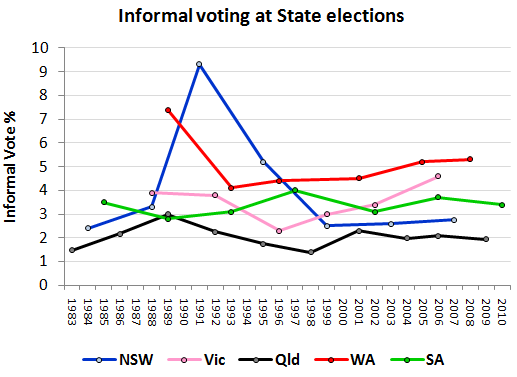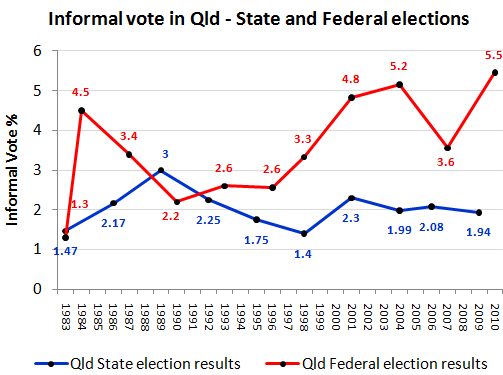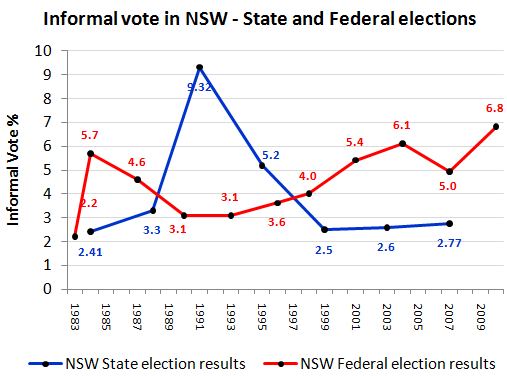Today, the Courier Mail reports that Qld Premier Anna Bligh has asked Attorney-General Cameron Dick to look into whether optional preferential voting at the state level is leading to an increase in the informal vote in Qld – presumably with the view of replacing OPV with the compulsory preferential model we have at Federal elections. I’m sure that compulsory preferential voting having the consequence of boosting ALP electoral prospects in Qld with a large Green vote has nothing at all to do with it.
No siree – cynics we ain’t. <cough>
There is no doubt at all that optional preferential voting existing at the state level increases the size of the informal vote at the federal election in those states. Our most recent look at it for the 2010 election result was here – and pretty much every man and his dog that has ever looked at it has come to the same conclusion.
But it’s also worth looking at what effect OPV has on State election results. At the moment, NSW and Qld are the two states running optional preferential systems for state elections, with NSW introducing it in the early 90’s and Qld introducing it in 1992. If we track the level of informal voting at state elections for the last 25 odd years, it’s interesting to note that NSW and Qld – the two states with OPV – have the lowest levels of informal voting among all the large states:
But as we know, by having two systems, the trade-off is an increase in the level of informal voting at the Federal level – which we can see by comparing the State and Federal elections in Qld:
The informal vote has experienced trend growth in Qld at the federal level since OPV was introduced in 1992. We also see the exact thing happening in NSW:
So Bligh certainly has a point – OPV does increase informal voting and any move back to compulsory preferential should see a reduction in the number of informal votes cast in Qld at federal elections. But it will also most likely come at the cost of slightly increasing the level of informal voting in Queensland state elections.










Crikey is committed to hosting lively discussions. Help us keep the conversation useful, interesting and welcoming. We aim to publish comments quickly in the interest of promoting robust conversation, but we’re a small team and we deploy filters to protect against legal risk. Occasionally your comment may be held up while we review, but we’re working as fast as we can to keep the conversation rolling.
The Crikey comment section is members-only content. Please subscribe to leave a comment.
The Crikey comment section is members-only content. Please login to leave a comment.